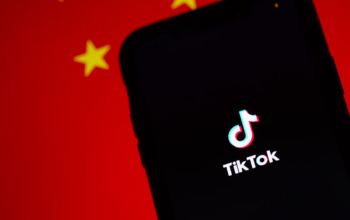Uzone.id — On Monday, December 5th, 2024, the United States Congress certified Donald Trump’s victory in the November 5, 2024 presidential election as the final step ahead of his inauguration on January 20, 2025. Trump won with 312 electoral votes, beating a candidate from the Democratic Party, Kamala Harris, who only got 226 votes.
Trump’s victory has significantly impacted various sectors, including the technology industry. Trump’s policies and approaches are expected to direct the technology industry differently than Biden’s period. This has led to a surge in stock prices across Wall Street, with big tech firms among the primary beneficiaries.

Elon Musk, the world’s richest man, who gives more than $130 million out of his pocket to support Trump and Republican congressional campaigns, has been chosen by Trump to lead the newly created Department of Government Efficiency, along with Vivek Ramaswamy.
The appointment complicates Trump’s policy predictions, especially since Musk is known for his mixed views on AI, including his concerns about the existential risks posed by this technology.
Deregulation and Pro-Business Policies
As a businessman, Trump is famous for his pro-business approach, including his effort to reduce regulations that hinder industrial growth. In the technology sector, this could mean relaxing rules regarding artificial intelligence (AI) and other digital innovations.
Thus, Trump is predicted to roll back several regulations related to AI made by Biden. Once these regulations change, this could pave the way for further innovation but also raise ethical and security concerns.
Policy for Artificial Intelligence (AI)
Previously, Biden signed a policy establishing voluntary security and privacy guidelines for AI developers. This policy aimed to increase the funding of research on AI, give the National Institute of Standards and Technology a greater role in creating the guidelines to reduce risks, and create a new body to test and evaluate AI models before they are released to the public.
On the other hand, Trump called the policy “dangerous” and claimed it could stifle innovation. He plans to change it to “AI development rooted in free speech,” echoing criticism from other Republicans of Biden’s effort to ensure AI use is equitable and free from algorithmic bias.
Gregory Allen, director of the Wadhwani AI Center at the Center for Strategic and International Studies, stated, “In some right-wing policy circles, safety is seen as a synonym for censorship.”

However, some of Biden’s agenda could survive, including the recent memorandum making AI a national security priority and urging agencies to maintain U.S. leadership by keeping the technology away from adversaries like China. Biden’s goal for a better AI infrastructure is also in line with Trump’s campaign, which highlighted the need to expand The US energy capacity to stay competitive, which could result in loosened permitting hurdles for land and electricity usage.
Changing Attitudes Towards TikTok
For years, the U.S. has been very strict with TikTok, a social media platform from China, to the point that it banned the platform from the country. Now, Trump has opposed the ban on TikTok, a change from his stance in his first term when he signed an executive order requiring the popular app to be shut down unless its owner, ByteDance Ltd., relinquishes ownership.
It’s still unclear how he will save the platform from enforcement of a new federal law—currently tied up by court challenges—that would ban TikTok unless a sale occurs by Jan. 19, the day before his inauguration.
The elected president saw TikTok as a worthy competitor for Meta’s platforms, such as Facebook and Instagram. According to Pew Research, the support for banning TikTok was reduced to 32% in September; previously, it showed 50% support in March 2023.
Cryptocurrency and Digital Assets
The Trump administration supports limiting government oversight of cryptocurrencies and opposes the creation of a Central Bank Digital Currency (CBDC). The GOP platform defends individuals’ rights to mine, own, and transact digital assets without government surveillance.
Environmental regulations impacting crypto mining and data centers are expected to be relaxed. Companies in cryptocurrency industries may benefit from reduced oversight, fostering growth in crypto transactions and mining operations.
Cybersecurity and Data Governance
Trump stated that cybersecurity is still the policy priority, focusing on protecting the crisis infrastructure and industry system from cyber threats. However, the Heritage Foundation’s Project 2025 seeks to reduce the budget and authority of the Cybersecurity and Infrastructure Security Agency (CISA).
The Trump platform included raising network security standards and implementing new requirements for cloud computing providers to maintain comprehensive customer records. Project 2025 also suggests resetting data governance negotiations with the EU to avoid undue burdens on US intelligence operations.
Freedom of Speech and Expression Online
Trump has long criticized social media platforms for content moderation and free speech. His administration may push for changes to the Communications Law, particularly Article 230, which legally protects digital platforms.
This law will remain a topic of discussion, especially regarding children’s safety online. Censorship will continue to be a key topic, but platforms like X, which now lean more to the right, rely on Section 230 to operate.
Trump’s victory in the 2024 presidential election has various implications for the Tech Industry in the United States. Technology companies must prepare to navigate the changing policy landscape and adapt their strategies to remain competitive in the global marketplace.
Writer: Adinda Ayu Sasqia Putri















